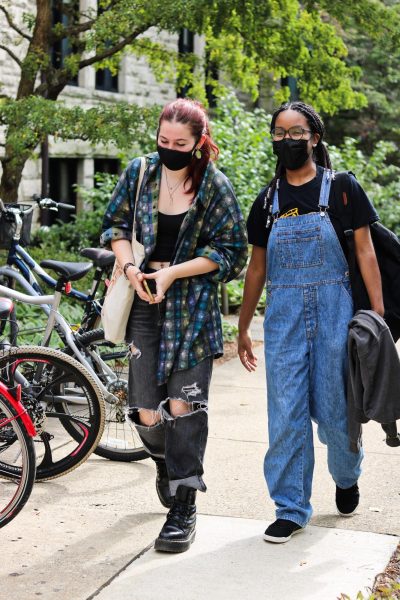Paying Columnists Will Increase Accessibility
In recent weeks, my fellow Review columnist Kameron Dunbar has published two pieces that succinctly and cogently identified instances in which Oberlin campus publications — namely, the Review and The Grape — have failed to assemble editorial staffs that reflect our community’s diversity and, as a result, have published pieces that fall short of the standards of rigorous inquiry and commitment to social justice that our community holds itself to.
As a former Review opinions editor who is studying abroad this semester, I certainly understand the intensity of working for a campus publication. It can be a relatively thankless, if personally fulfilling job — the hours are long and come in addition to normal academic and extracurricular commitments. This pressure often leads to missed mistakes. Part of the nature of putting out a weekly publication, in the case of the Review, is that there are going to be slips.
That being said, publication staffs should do everything in their power to minimize errors, especially to preemptively address potential content mistakes that will cause harm if they fall through the cracks of the editorial process. I know that the staffs of both the Review and The Grape are committed to this principle — now comes the hard work of envisioning how to bring it into existence.
One key step that I believe the Review should take — and that The Grape has already taken — is to pay its columnists. I believe that the Review’s Opinions section is one of the paper’s most important because it provides an opportunity for sharing substantive thoughts and engaging in longer-form discourse on a public platform that anyone in the community can read and contribute to.
However, there are certain barriers to contributing. A key one, in my mind, is that of financial accessibility. There are plenty of Oberlin students, myself included, who are much less likely to participate in an organization or take on a role if they will not be compensated for their time and energy. Who can blame them? It costs a lot of money to attend Oberlin, and I think a compelling argument can be made that students should not prioritize activities that do not satisfy graduation requirements, offer financial benefit, or promote self-care.
By not paying columnists, I believe that the Review limits its Opinions section to hearing regularly from voices that are willing, for whatever reason, to pour time and energy into writing columns without financial compensation. To be sure, there is nothing wrong with contributing simply out of passion, but to make that an institutional expectation of writers and columnists is misguided and unfair.
Having been on the Review staff last fall, I know that there is interest within the office in securing funding for the very purpose of paying columnists and staff writers. I applaud their commitment and hope that this proposal comes to fruition. It would be an important step toward making the Opinions section more accessible and therefore more inclusive of the diversity of perspectives that Oberlin is lucky to have. I also hope that, come spring budgeting time, the Student Finance Committee shares this vision and commitment.
I’ve written this column to encourage the greater student body to have this issue on their radar. Obies frequently advocate for the importance of compensating people — especially students, who already face significant financial barriers in this age of rapidly inflating tuition costs — for their time and energy.
Applying that same emphasis on financial accessibility to the Review is perhaps more important than some students currently understand. People — in Oberlin and around the world — read pieces in this publication. It is already a place where important events are covered and important ideas are proposed, and it has great potential to move even further in that direction.
Making the process of contributing to the Review more accessible will be an important step toward addressing some of the issues that have recently arisen in campus publications — but it should only be a piece of the effort to make Oberlin’s writing and editorial staffs more diverse. Oberlin is a special place with a lot of big thinkers and it benefits us all to have their ideas shared on a platform that we can all learn from.




